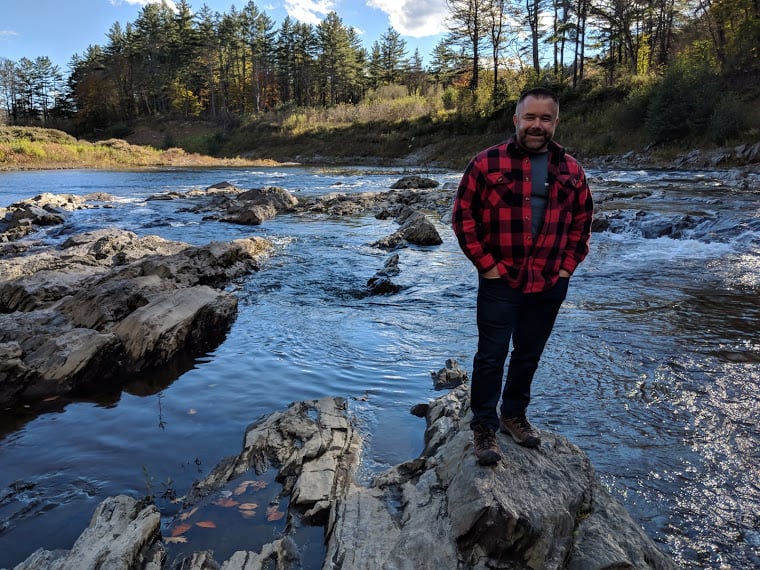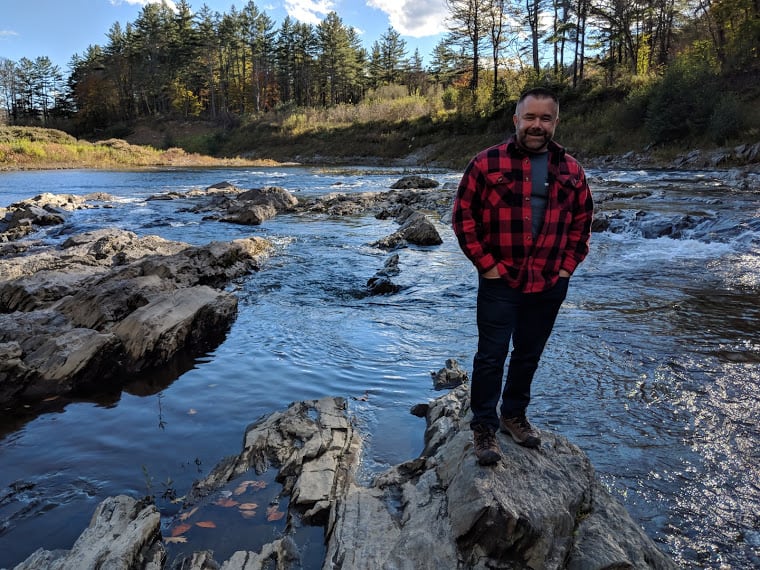
SMELANDA JEAN-BAPTISTE, Special to The Denisonian — Wellness is a term that is increasingly used in the health world and especially on Denison’s campus. Dustin Brentlinger, Denison’s new Director of Student Health and Wellness, is on a mission to get students to develop their own personal definitions of what it means to take care of themselves.
Brentlinger is a Columbus native, but his work in higher education has taken him across the globe from England and China to the University of Connecticut, where he held his most recent position as Interim Director of Strategy for Wellness. Despite working for a wide range of colleges, there is something special about the connections and mission-driven nature within a small liberal arts that drew Brentlinger to finding a position at Denison.
“This somewhat feels like coming home,” Brentlinger says. “I love being embedded in the life of a college.”
Brentlinger has a wide belt of experience when it comes to helping students navigate through their many, and often stressful experiences. It was being a hall director to nearly 200 Division 1 athletes that sparked his devotion toward higher education.
Integral to his role at Denison is not only Brentlinger’s commitment to students, but an understanding of how our institutional systems influence a student as a whole. A university committed to changing culture and education requires an understanding of students on a personal level, and how the institution’s structure aids in that mission.
Brentlinger’s philosophy is rooted in collective impact, which he defines as “a way of getting a community to move forward.”
Collective impact requires the community to be informed on the same data, and that all branches commit to making small changes in our respective spaces. These small changes create what Brentlinger calls “reinforcing activities”, which are the impact that those small changes have on the community.
We can think about student sleep schedules as an example, which are integral to many aspects of academic and all-around well-being. Collective impact would say that various aspects of our community can contribute in changes: from addressing the lights used in residence halls (which can deter people from falling asleep), to the impact of midnight assignment deadlines. All these small steps can add value to a college campus.
“If you believe in collective impact, you believe that grassroots efforts are more important than top-down direction,” continued Brentlinger. Grassroots efforts, Brentlinger believes, can be “culture-changing.”
Brentlinger aims to emphasize that wellness is personally defined, but so is community value. Understanding wellness requires asking oneself what factors are important to you—whether physical, mental, financial, etc.— and the community, in turn, supports the individual’s values. That support affects a student’s ability to improve themselves, feel better, and increase wellbeing. All these layers play into one’s self-care, which ultimately affects what Brentlinger calls “community care”.
Brentlinger is focused on driving institutional resources toward what students voice they need in order to cultivate wellness in their own ways and focusing in on those specific areas. “For me, it’s important that I don’t tell people what the change needs to be…if you ask people, they’ll tell you what they’re ready for.”
Approaching his fifth week on campus, Brentlinger has seen the commitment of Denison students to making their campus better and wants to continue hearing more from the students themselves, whether through face-to-face conversation or through their organizations.
“If I were to define wellness, it is a general idea that we as humans want to grow and flourish,” says Brentlinger.

